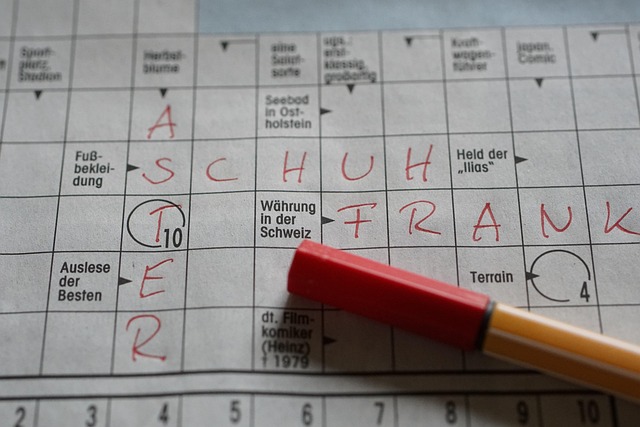Crossword puzzles often blend clever wordplay with layers of meaning, and one particularly intriguing clue that has stumped many solvers is: “Some heirs’ cash sources.” This phrase may seem simple on the surface, but beneath lies a rich interplay of linguistic tricks, cultural references, and financial connotations. In this article, we’ll unpack this crossword clue by exploring its structure, analyzing possible answers, and diving into related concepts such as trust funds, inheritance, and passive income—the real-world equivalents of what some heirs might rely on.
Clue Dissection: What Does “Some Heirs’ Cash Sources” Really Mean?
To solve any crossword clue, it helps to identify what type of clue you’re looking at. This one likely falls into one of the following categories:
-
Cryptic-style wordplay (often found in UK-style crosswords)
-
Straight-definition clue (common in American-style puzzles)
-
Hidden words or abbreviations (very common in clever puzzle construction)
Let’s break this one down:
-
“Some” might be a signal word for a hidden answer, suggesting the solution is embedded in the clue itself.
-
“Heirs’ cash sources” is the core idea—sources of money that heirs might receive.
So, the clue may either:
-
Point directly to something like TRUSTS, ESTATES, or WILLS, or
-
Use clever misdirection to hide a word in plain sight.
Possible Answers: Best Guesses & Their Logic
Here are a few likely answers that fit the clue, especially in typical crossword formats (5-8 letters):
-
TRUSTS (6 letters)
-
Reasoning: Since heirs commonly receive financial support through trust funds, the term ‘trusts’ serves as a logical and fitting solution.
-
Clue logic: Straightforward definition.
-
-
ESTATE (6 letters)
-
Interpretation: The portion of a deceased individual’s estate that is allocated to an heir.
-
Clue logic: Common financial/legal source of inheritance.
-
-
WILLS (5 letters)
-
Explanation: Legal documents directing inheritance.
-
Clue logic: Might be seen as “source” of the decision for cash disbursement.
-
-
TRUST FUND (9 letters – more for themed crosswords)
-
Explanation: The most obvious answer if the crossword allows two words.
-
Clue logic: Literally what many heirs depend on.
-
-
HIDDEN WORD (depends on the full crossword layout)
-
If “Some heirs’ cash sources” appears in a longer sentence, the answer might be hidden across the words, e.g., “sheirscash” could hide “HEIR” or “CASH.”
-
Crossword Construction Tricks Often Used in Such Clues
To better understand how crossword setters trick us, keep in mind:
-
Homophones: Clues that sound like something else.
-
Concealed Words: When the solution is embedded within the clue itself, often signaled by phrases like ‘Some.
-
Double meanings: Where the surface clue and the real meaning diverge.
-
Anagrams: Rearranged words indicated by phrases like “twisted,” “broken,” or “scrambled.”
In this case, “some” may be the key indicator pointing to a hidden or fragmented answer.
Real-World Context: How Do Heirs Actually Get Money?
Understanding the clue’s reference also involves some knowledge of how heirs receive wealth:
1. Trust Funds
-
Legal entities that hold assets for beneficiaries.
-
Managed by a trustee and paid out under certain conditions.
-
Very common for wealthy heirs.
2. Wills and Estates
-
When someone passes away, their estate is distributed based on the instructions outlined in their will.
-
If there’s no will, intestate laws apply, and heirs may receive set shares.
3. Dividends & Investments
-
Some heirs inherit portfolios that produce ongoing income.
-
These may not be large sums initially but can grow.
4. Life Insurance Policies
-
Lump-sum cash payouts to named heirs after a death.
Why Crossword Solvers Love These Kinds of Clues
This clue is a great example of multi-layered thinking that attracts both casual solvers and seasoned cruciverbalists:
-
It plays with language.
-
It connects to real-world knowledge.
-
It invites lateral thinking (e.g., interpreting “cash source” metaphorically).
Conclusion
The crossword clue “Some heirs’ cash sources” is deceptively simple but contains rich layers of interpretation. The most fitting answer in many cases is “trusts”, though depending on the grid size and clue structure, alternatives like estate, wills, or even trust fund may apply. These answers aren’t just clever—they reflect real-life mechanisms by which wealth is passed down, adding a level of educational intrigue to the solving process.
So the next time this clue pops up, remember: it’s not just a puzzle—it’s a peek into the subtle art of wordplay and the mechanics of inheritance.


